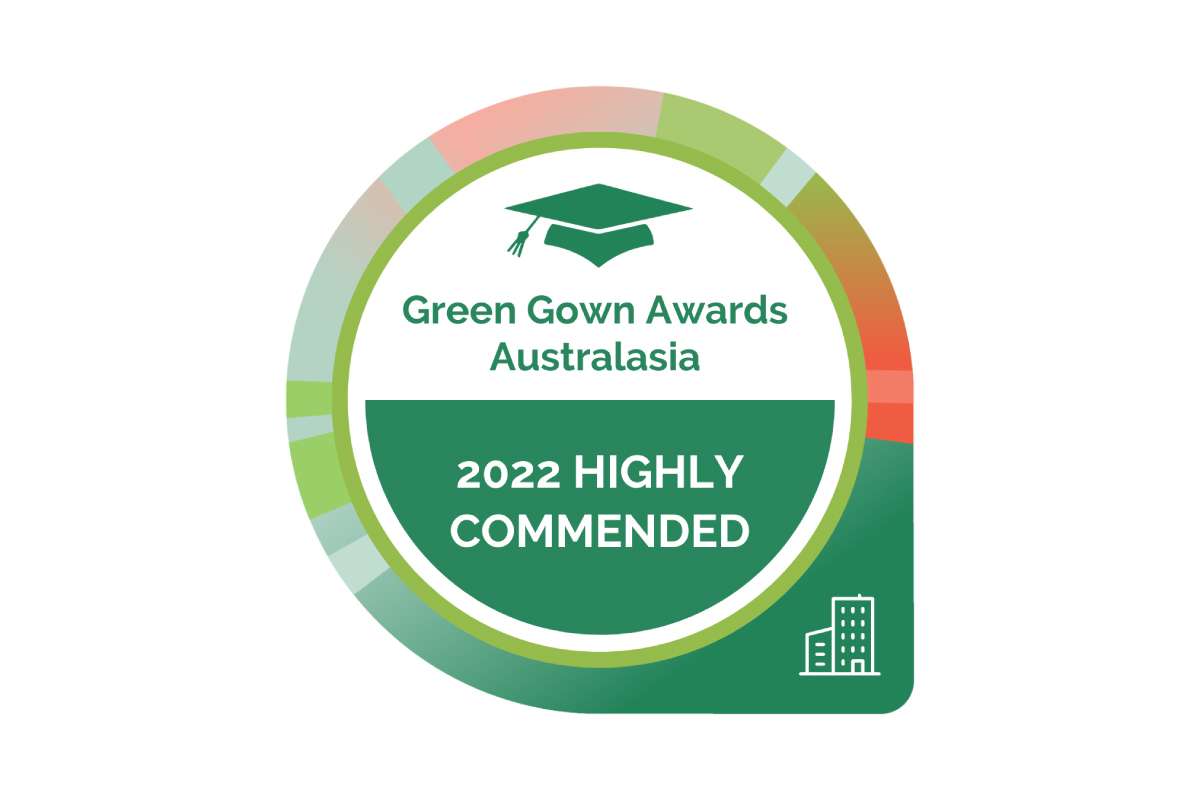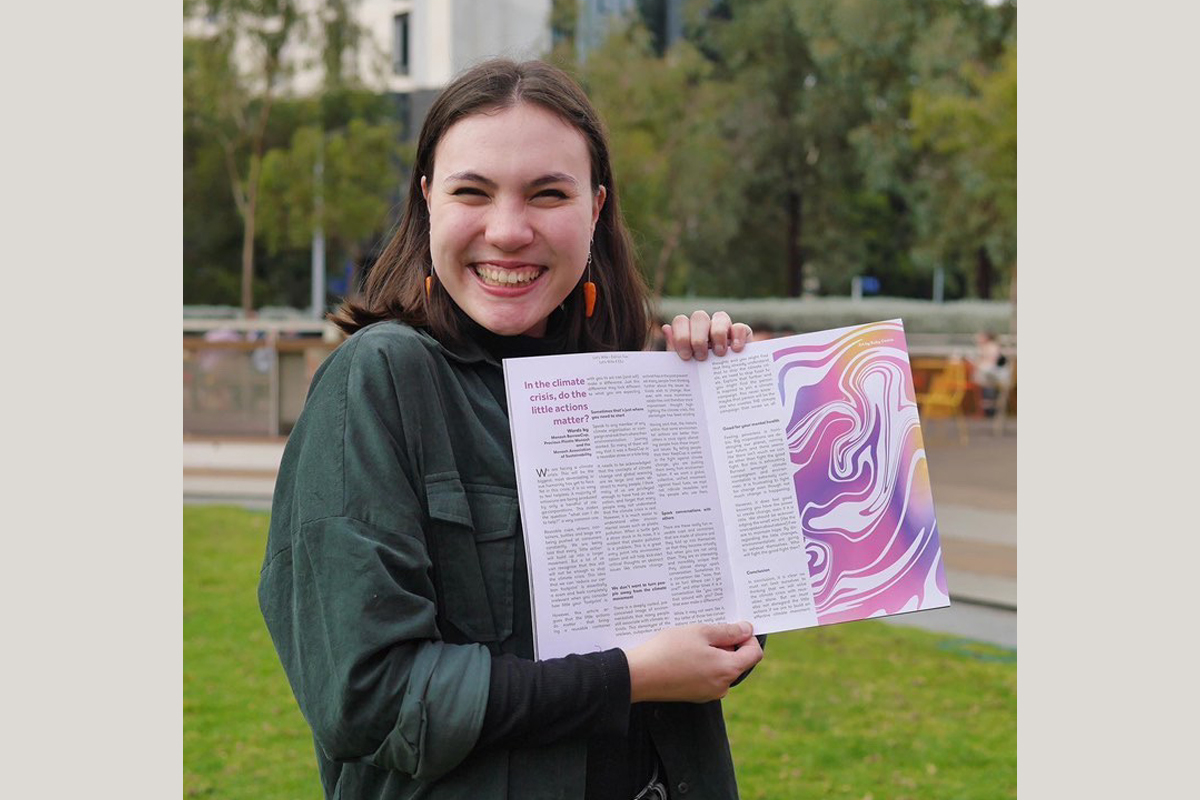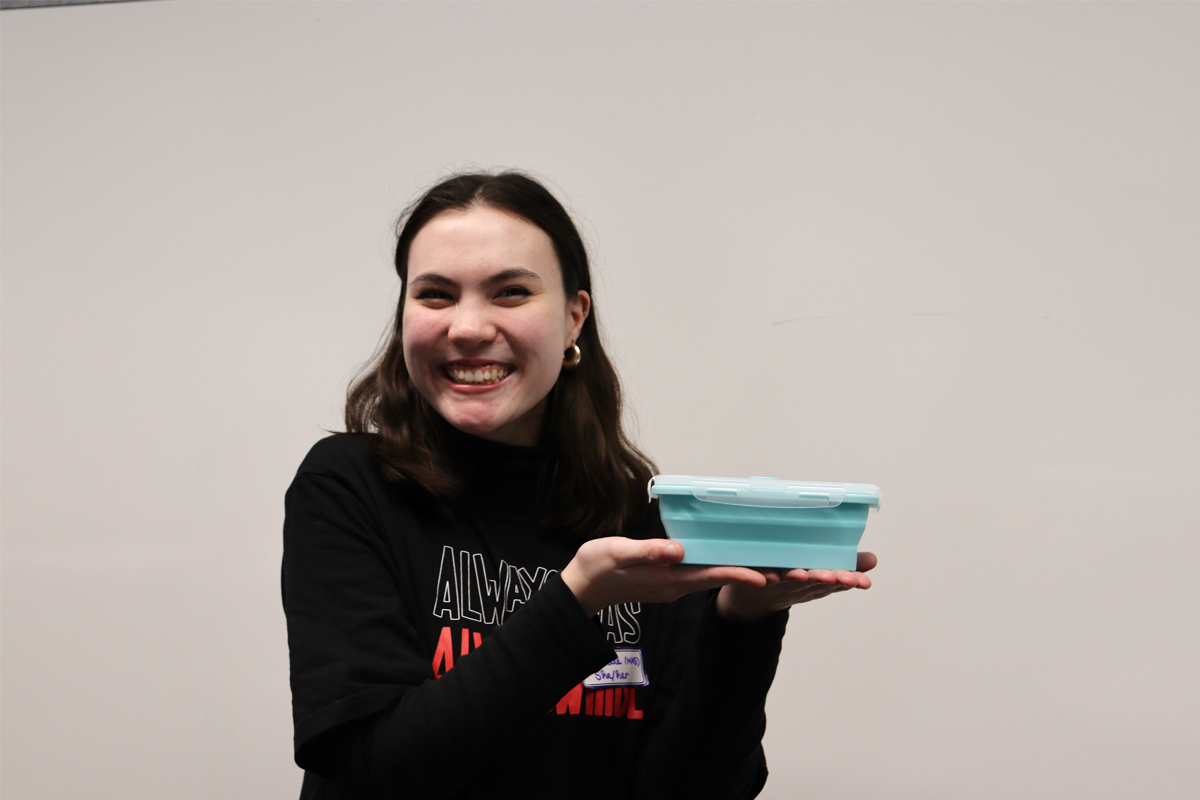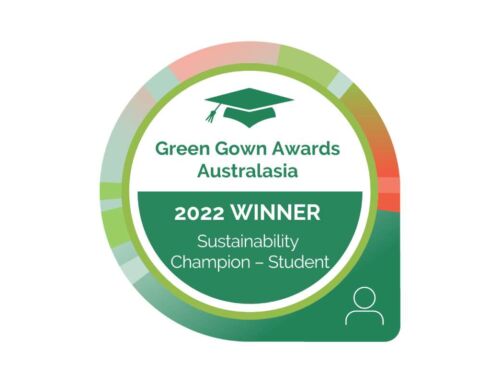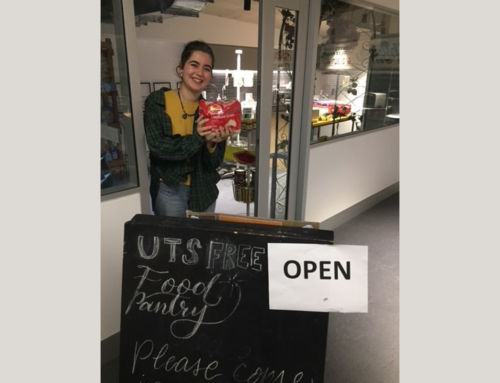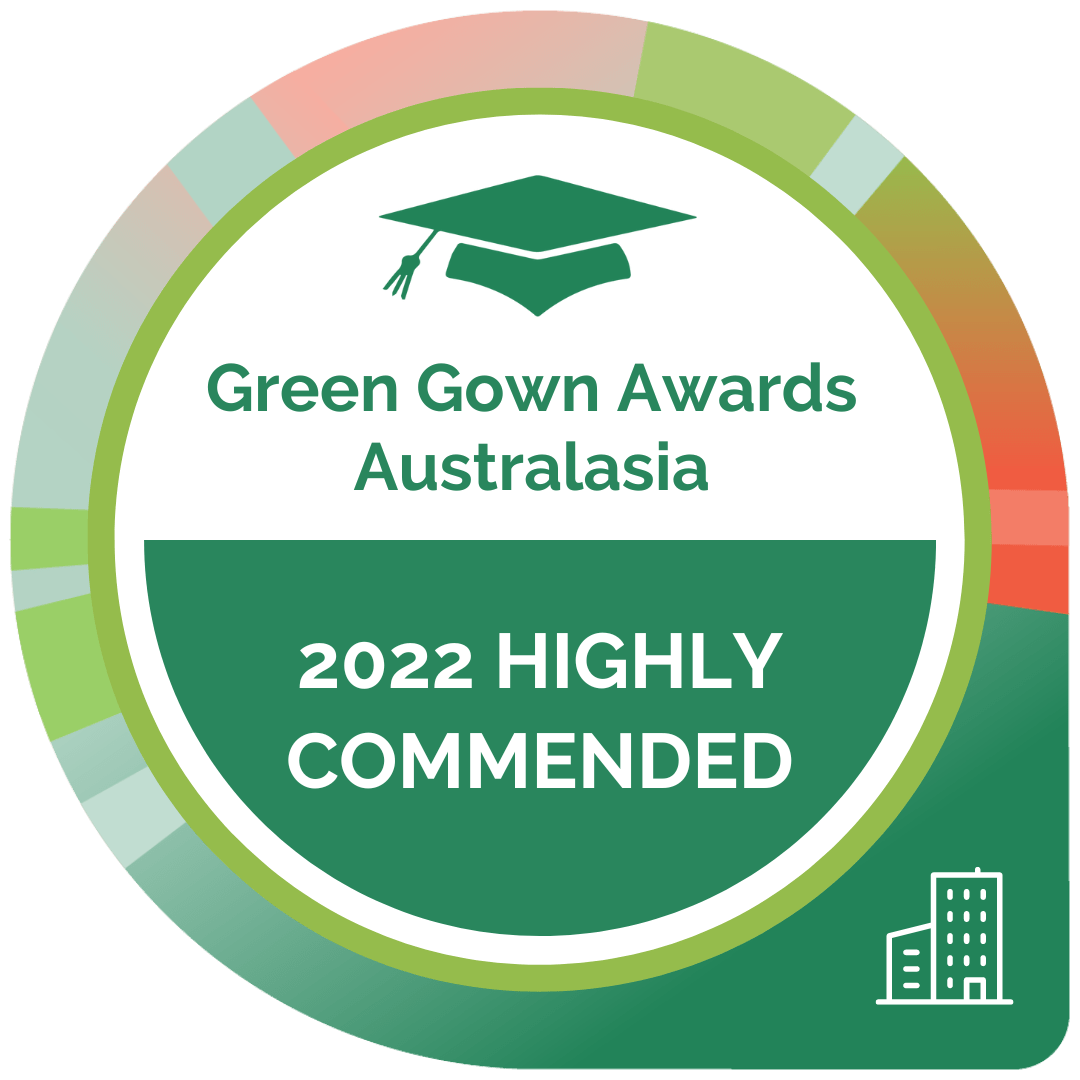
Monash University
I am a Master of International Relations student at Monash University. I have been advancing sustainable development within my university since I started university in 2018. In 2020, I founded a student team called the Monash Association of Sustainability (MAS) through which I engage students with sustainable development through events and research projects alongside other passionate students. However, through the formation of MAS, I noticed that being a part of teams such as MAS can be very isolating and exhausting. Simultaneously I was coming across dozens of very similar student teams from universities across Australia who I saw as leading the change in their communities. Hence, I started the Sustainable Universities Network (SUN) to bring together these groups, foster collaboration and create a unified, national student voice. This personal project has now grown to include members from across Australia, covering 40% of Australian universities (and counting!).
> A closer look
My generation of students are incredibly passionate about defending our institutions and ensuring that they become vessels for sustainable development in our societies. Yet, we are often left frustrated at the bureaucracy at universities and often feel like our voices are being undervalued and underutilised. Hence, my mission is to continue to fight for student voices to be at the forefront of all sustainability conversations with universities.
Beyond that, SUN and sustainable development are my greatest passions and I have put in an enormous amount of effort to get SUN started. Starting with no budget and only me in my bedroom, I have been unwaveringly determined to get these groups together. I began by cold messaging all the sustainability-related students’ groups I could find from across Australia, and I am so grateful that others agreed that a network amongst us would be helpful. I created social media accounts, and our website, and hosted webinars alongside our fortnightly network meetings that have run consistently for almost 2 years. I then began to recruit a little team around me who now help me to run our network. Whilst exhausting, this process has been incredibly rewarding as I now see SUN as truly helping our member student teams and I have begun to see amazing collaborations, connections and partnerships being fostered.
Our trademark engagement strategy at SUN has been our fortnightly meetings. I have been running these since the beginning and they entail the student teams sharing what they have been up to and raising any issues that they have been having. I am surprised that so frequently the SUN teams all have the same issues. They are all facing burnout, a lack of commitment, difficulties engaging with their universities and isolation. Yet, up until now, these teams have been facing these issues alone. Hence, they each have their own unique techniques and tricks on how they can solve these issues, and each is always so eager to share what helped them. This has been one of the greatest things SUN has achieved – mass knowledge sharing amongst these teams which has made their groups more capable to fight for sustainable development in their community.
In 2022, we also decided we wanted to try our hand in advocacy. At SUN, we have created a unique opportunity to represent a collective student voice that spans the country. Hence, I really wanted to utilise this power to create change on a national level. I have personally been very concerned about the fossil fuel company, Woodside’s Scarborough Gas project. This project will be a climate and ecological disaster. Given this, I am not alone when I say that I am extremely unhappy that many universities in Australia work very closely with Woodside and effectively help them to create a social license in our communities, allowing to create projects like Scarborough almost undetected. Given my concern for this and my unique position of having access to the collective student voice SUN has fostered, I started SUN’s ‘Students say no to Scarborough’ campaign in an effort to get our beloved universities to remove their ties with fossil fuels. This process has been very frustrating. We are constantly facing apathy and bureaucracy but this is something I am so passionate about. My university allowed me to explore my passion for sustainability and this fact has been completely spoiled by the partnership they have with Woodside. Hence, I will continue to fight to defend my university and help other students do the same at theirs.
My final big project for 2022 is ‘Sustainability Fortnight’. My dream is that we can build this initiative to become a national (or international) week where universities all, unified, put on a sustainability week. This year is a ‘pilot’ to see if university students (and staff) are enthusiastic about this idea and so far they have been! We have six universities across five states participating and all who have been involved seem keen to continue this into the future! I have also taken this opportunity to create partnerships between student groups. Hence, all the events on the event line-up are collaborations between student teams from across Australia. It has been such a privilege to see partnerships (and friendships) grow.
> Impact and benefits
One of the greatest benefits of SUN has been the way that the student teams have been able to help each other. As mentioned, each faces very similar issues and has consistently been willing to help each other out. For example, our member at the University of Tasmania put on an amazing documentary screening with dozens of people in attendance. In the wake of their success, they shared how they put on the event and how they managed to pull such an amazing crowd with the rest of SUN. As a result, a few other teams put on similar events at their university – fostering communities and educating people on sustainability in their local context. Another example is that the University of QLD team recently hired a full-time gardener to help manage their overgrown and run-down community garden. Coincidentally, at Monash, we had been facing the exact same problem with our garden. We, therefore, raised with our Buildings and Property department that UQ had solved their issues by hiring a gardener and from that. It is extremely impactful and beneficial to our communities to hear from others in similar positions and undertake very regular knowledge exchanges.
Similarly, the student members within SUN have been sharing resources. For example, my group at Monash, MAS created a colouring book based on the SDGs to help educate our community. This book has been so successful that we made it a public resource and it has been thus used in other events at universities across Australia. This would not have happened without SUN being a constant vessel for sharing.
Another huge benefit to our university communities is that SUN is providing an avenue for people to understand the student perspective. This is evident through the success we have had in our ‘Say no to Scarborough’ campaign where we are educating students and staff of the Scarborough Gas project – most for the first time. Hence, we have been able to spread information about this ecological and climate disaster which has gone reasonably unnoticed.
Finally, one common discussion I have been having with students across Australia is that working in sustainable development is exhausting. Whilst all are passionate about change, the slow pace of change and the rapid proliferation of crises is terrifying to work amongst. Burnout happens to these students almost monthly and so often do they feel isolated in their battles. Hence, SUN has been such a gift to many members (including myself). Learning that you are not alone and that the challenges you face are not due to your incompetency but rather are experienced all over the county is extremely impactful and motivating. I have also tried to foster candid conversations about mental health when working in sustainability and I do see this as being very beneficial to those involved with SUN.
> Leadership and engagement
I am always on the lookout to create two distinctive things: lasting impact and connections.
In terms of lasting impact, I always make sure that the projects and events we run have ongoing impacts beyond their scope. The networking events I put on, always ensure that there is ample time to create connections and that an open resource will be made from those discussions. Through this, I have created guides and position statements that have helped students (and staff) across Australia. I also believe that centring student concerns and SUN being led entirely by students is really distinctive. I believe that doing so means we are guided by the concerns of this generation – a generation that is focused on protecting the future. Therefore, SUN is always pursuing lasting impact and creating ways that we can ensure that all future generations of students don’t have to fight as hard as we do to secure their future.
The other distinctive feature of my design of SUN is the focus on connections. All members meet fortnightly. From my other experiences with networks, this is very unique! It is also unique that so many members attend each meeting! Through this, the students have genuinely bonded, and we have created friendships! This has become evident as the country has lifted COVID restrictions and when members visit other states they meet up! It is also evident through the number of collaborations and knowledge sharing that happens without my intervention. Because of this, I have a commitment to ensure membership to SUN and that all SUN events are always free and accessible. I want every student sustainability group to experience and gain from these connections. I have also been doing similar work with the Sustainable Development Solutions Network (SDSN) Youth organization for the AusNZPac region. Connecting young people not only to each other but also to the resources, events and projects that can support them.
> Wider societal impact
Young people are the future. Yet the ones who are most passionate about creating change are the ones that feel the most exhausted and isolated. I, therefore, see my work with SUN as vital to ensure the young people who are leading the fight for a sustainable world are well connected with the people and resources that will make their actions as impactful as possible. Amongst our members we have activists who have organised climate strikes, we have young people who have organised clean-ups and plantings to protect their local areas, and we have students creating events and resources which are educating others and spreading the cause for sustainability far and wide! We have students working with universities, local leaders, politicians, businesses, public servants, and other passionate young people to change their communities for the better. Making sure that they feel confident and motivated to keep pursuing sustainable development is vital for society.

